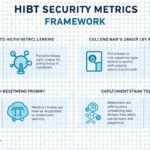Vietnam Blockchain Innovations: Leading the Future of Digital Transformation
With investments in blockchain technology reaching over $2 billion in the last year alone, Vietnam is positioning itself as a leader in the innovation of blockchain solutions. As the world embraces the digital transformation of financial systems, the Vietnamese market is emerging as a vibrant hub, actively embracing these changes to enhance efficiency, security, and transparency in various sectors.
The Growing Interest in Blockchain Technology in Vietnam
The interest in blockchain technology in Vietnam has recently surged, fueled by favorable government policies and a youthful population eager to engage with innovative technologies. The number of blockchain startups has tripled in just two years, showcasing the country’s promise in this space.
- According to VECITA, the Vietnamese cryptocurrency market has grown by over 70% annually.
- Vietnam’s contribution to blockchain technology is expected to reach $10 billion by 2025.
Key Innovations in Vietnam’s Blockchain Sector
Vietnam is witnessing several innovations in blockchain applications across various industries. Here’s a breakdown of some of the key areas:

- Supply Chain Management: Utilizing blockchain for transparent tracking of goods—from producers to consumers—enhancing trust among stakeholders.
- Finance and Banking: Introduction of decentralized finance (DeFi) platforms allowing greater access to financial services for the unbanked.
- Healthcare: Storing and sharing patient records securely using blockchain technology, paving the way for efficient and privacy-focused healthcare solutions.
Challenges and Solutions in Blockchain Adoption
While the future looks promising, several challenges need to be addressed to fully realize the potential of blockchain in Vietnam:
Regulatory Hurdles
One of the significant obstacles is the lack of clear regulatory frameworks surrounding blockchain deployments. However, the Vietnamese government has shown a commitment to creating a conducive legal environment for blockchain innovation.
Technological Barriers
The limited infrastructure and technological expertise can hinder the swift adoption of blockchain. However, investments in education and training are underway to address this gap.
Understanding the Market Landscape for Blockchain in Vietnam
The demand for blockchain technology in Vietnam is driven by factors such as the rise of e-commerce and digital transactions. According to recent data, the number of Vietnamese digital users is projected to reach 75 million by 2025, significantly boosting the need for secure digital solutions.
Future Prospects for Vietnam’s Blockchain Sector
Looking ahead, the future of blockchain in Vietnam appears bright with strategies aimed at positioning the country as a regional leader in digital technology. The government’s focus on tiêu chuẩn an ninh blockchain (blockchain security standards) will provide a solid foundation for safe and effective technology adoption.
- Investment in talent with programs aimed at producing 10,000 blockchain professionals by 2025.
- Collaboration with global blockchain leaders to foster skill development.
Conclusion: A Leap Towards a Digital Future
With its strategic advancements in blockchain, Vietnam is well on its way to becoming a key player in the global digital economy. The innovations within this arena not only streamline transactions but also enhance the security and efficiency of business operations.
The growth of the blockchain sector is a testament to Vietnam’s adaptability and potential in navigating the digital landscape. As we move closer to 2025, the importance of understanding Vietnam’s blockchain innovations becomes increasingly crucial for stakeholders worldwide.
For those interested in the transformation of financial systems and blockchain technology, this vibrant market offers insights and opportunities that cannot be ignored. To explore more about Vietnam’s blockchain journey and examine trends in the crypto space, visit Hibt.com.
This is not financial advice. Always consult local regulations before engaging in crypto-related activities.
Written by Dr. Lisa Tran, a blockchain researcher with over 15 published papers in the field and a consultant for several prominent digital asset projects.




